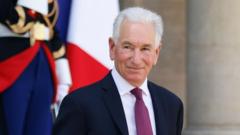Despite his excommunication, efforts were made for reconciliation when Pope Benedict XVI reinstated him in 2009, a decision that aimed to repair divisions within the church. However, following his reinstatement, Williamson generated significant controversy due to an interview in which he expressed views denying the Holocaust, leading to rapid backlash. These statements not only alienated him from the Vatican but further solidified his reputation as a polarizing figure.
The Society of St. Pius X, which opposes the reforms initiated by the Second Vatican Council, continues to operate independently and has been scrutinized for harboring antisemitic sentiments. Williamson's death has triggered discussions about the enduring impact of his ideology, the challenge of reconciling traditionalist views with contemporary church policies, and the broader implications of intolerance within faith communities.
While Williamson's beliefs have been widely condemned, his legacy serves as a reminder of the complexities within faith traditions and the ongoing struggle against hatred and discrimination.
As the church continues to navigate these controversies, the life and views of Richard Williamson remain a focal point for critics and supporters alike, inviting a deeper examination of the intersection between faith and social responsibility.
The Society of St. Pius X, which opposes the reforms initiated by the Second Vatican Council, continues to operate independently and has been scrutinized for harboring antisemitic sentiments. Williamson's death has triggered discussions about the enduring impact of his ideology, the challenge of reconciling traditionalist views with contemporary church policies, and the broader implications of intolerance within faith communities.
While Williamson's beliefs have been widely condemned, his legacy serves as a reminder of the complexities within faith traditions and the ongoing struggle against hatred and discrimination.
As the church continues to navigate these controversies, the life and views of Richard Williamson remain a focal point for critics and supporters alike, inviting a deeper examination of the intersection between faith and social responsibility.

















